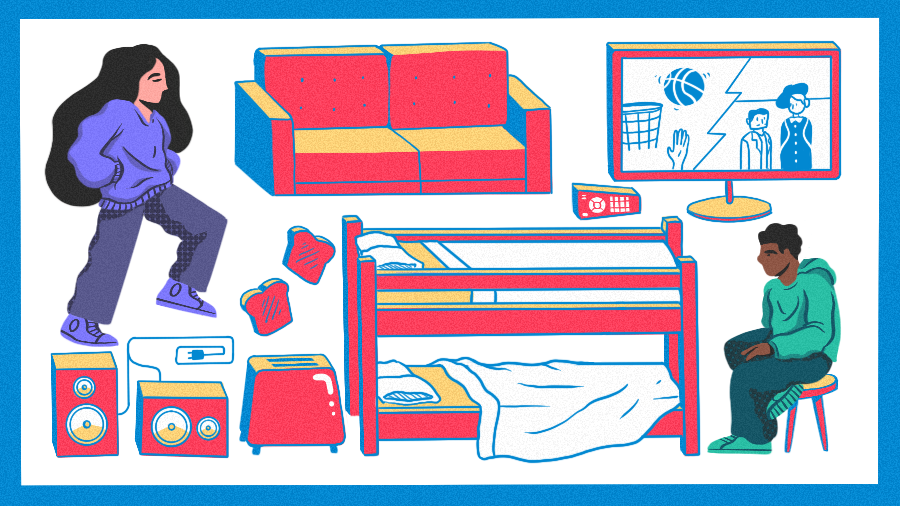Laundry may be at the center of how the future of cities are planned.
Caduta, a laundry startup based in San Francisco, raised $7 million in seed funding to update coin-operated laundry, the company announced Wednesday.
Cerca meno. Chiudi di più.
Aumenta le tue entrate con soluzioni di prospezione all-in-one fornite dal leader nei dati delle aziende private.
Funding was led by Virginia-based angel investment group Hivers e Strivers con ulteriore partecipazione di Array Ventures, Investimenti tecnologici occidentali ed ZagCapital.
“I think that technology really didn’t penetrate this industry for so long because of the ‘if-it-ain’t-broke-don’t-fix-it’ [mindset] and overall feeling of this isn’t interesting,” said CEO and founder Scott Patterson. “When in reality, this is a massive industry that touches everyone’s lives in one way or another.”
What Tumble does
Tumble is a hardware and software platform aimed at updating the coin-operated laundry facilities found in most multifamily housing. Its hardware solutions replace or connect to parts of the washing machine and enable it to lock the machine so it can only be opened by whoever loaded it, or to do the vast majority of repairs remotely by restarting the machine. The software platform allows for cashless payments and shows how many machines are available to use at a given time.
The startup works with a handful of apartment buildings, and the fresh funding will go toward scaling the company and integrating its tools into more multifamily housing units.
Tumble is also rolling out a delivery-based laundry service in its San Francisco headquarters, which it plans on expanding to other U.S. cities.
Tumble is entering a very small and very antiquated industry dominated by coin-operated laundromats. According to Brian Wallace, CEO of the Coin Laundry Association, while laundromats are starting to embrace mobile payments, 59% of them still use coins as their only payment method because it’s cheaper. New technology firms that want to update the space may take away from a laundromat’s razor-thin profit margins.
That hasn’t stopped startups from trying.
The delivery model for urban centers
So far, laundry startups in 2022 have seen a meager $52 million in funding, mostly for laundry delivery services such as Sud Condividi, which raised $10 million in seed funding in March for its gig work-powered, app-based laundry delivery service. Another, Loopy, offers a similar on-demand laundry service model.
These kinds of startups saw their heyday in 2015, when the laundry startup industry experienced a record $157 million in venture funding. Coincidentally, 2015 was also the year Uber was at its most profitable—the company also began its self-driving cars initiative and launched Uber mangia lo stesso anno.
I don’t think it’s much of a coincidence these laundry service startups saw the majority of their funding in the wake of Uber’s success. After all, the most prolific gig work company gave way to all sorts of industries employing some form of gig work. But funding in the laundry space slowly dwindled down to $58.6 million in 2020 before seeing a small resurgence in 2021 (it should also be noted some of the largest startups in this space, like Risciacquare ed Pulito, employ a W2 model to retain workers).
Much like how Uber doesn’t own its cars, many of the startups don’t own the laundromats they utilize. But Patterson said a more efficient laundry model can allow cities to more effectively utilize precious real estate in dense urban environments.
The majority of washing machines in laundromats go unused for most of the day. Meanwhile, multifamily housing units squeeze in a family of machines where another housing unit could go.
“In a world where we’re talking about decarbonization, being more efficient in our building practices, this is the future we’re going to look for,” Patterson said. “How do we automate things away and just sort of get rid of these parts of our lives that we don’t need to spend time on? And how do we more efficiently build and look at cities?”
Opportunities for automation
Similar to how former Uber CEO Travis Kalanick saw Uber as the first step in creating infrastructure to support self-driving cars, Patterson feels the same about Tumble’s nascent laundry technology and delivery service.
Leveraging data from laundry facilities and its on-demand delivery service, laundry service startups like Rinse and Tumble may be able to scale and offer delivery services at a much faster turnaround time than an average wash-and-fold service. Once that marketplace is created, the entire process could become entirely automated.
“Anything that’s dangerous, dirty or dull is going to get automated away,” Patterson said. “And what better place to do laundry than in these rooms that already exist, that are all over these urban centers that are right next to the consumers?”
Illustrazione: Dom Guzman

Rimani aggiornato con i recenti round di finanziamento, acquisizioni e altro ancora con
Crunchbase quotidiano.
Le startup che raggiungono rapidamente lo status di unicorno spesso non riescono a sostenere le valutazioni elevate. Esaminiamo i modi in cui gli unicorni possono salire e scendere velocemente.
A couple of $1 billion rounds led the way for funding big rounds last month, as investors spread money around to everything from energy to the…
I round interessanti andati alle startup innovative questo mese includono cibo finto per animali domestici, cibo per insetti e denaro per una persona virtuale creata dall'intelligenza artificiale.




